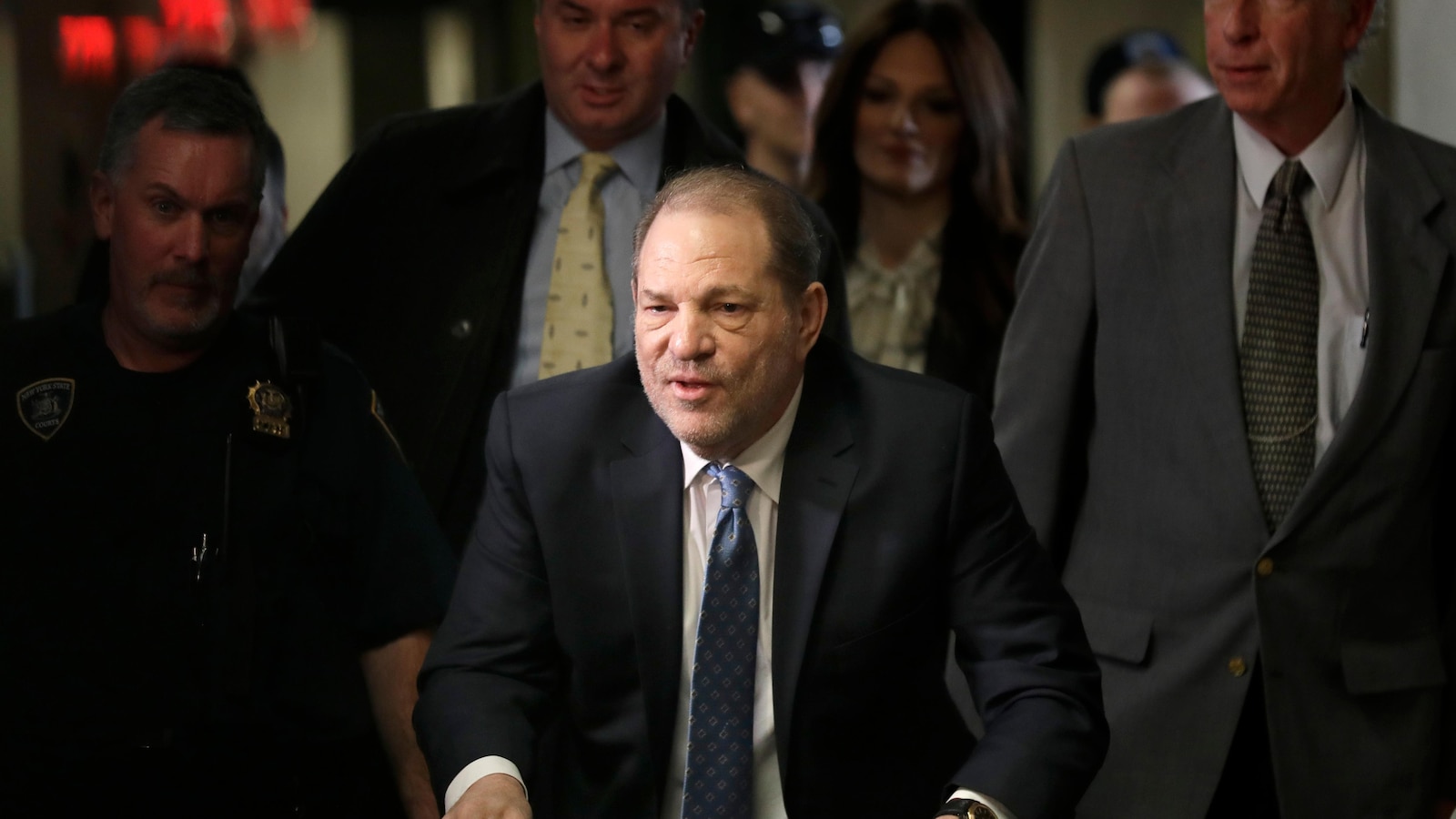New York’s Top Court to Hear Arguments on Weinstein’s Appeal of 2020 Rape Conviction
In a case that captivated the world and sparked a global movement against sexual harassment and assault, former Hollywood producer Harvey Weinstein was convicted of rape and sexual assault in 2020. Now, New York’s highest court is set to hear arguments on Weinstein’s appeal, which could potentially overturn his conviction.
Weinstein, once a powerful figure in the film industry, was found guilty of raping an aspiring actress in a New York City hotel room in 2013 and sexually assaulting a production assistant in 2006. The trial marked a significant victory for the #MeToo movement, as it exposed the dark underbelly of the entertainment industry and shed light on the pervasive issue of sexual misconduct.
However, Weinstein’s legal team has been fighting tooth and nail to overturn his conviction. They argue that the trial was tainted by media coverage and biased juror misconduct. They claim that the jurors were influenced by the intense media scrutiny surrounding the case and were unable to render an impartial verdict.
The appeal will be heard by the New York Court of Appeals, the state’s highest court, which is composed of seven judges. The court will review the arguments presented by both sides and make a decision that could have far-reaching implications for future cases involving high-profile individuals accused of sexual misconduct.
One of the key issues at stake in Weinstein’s appeal is whether the trial judge allowed too many women with similar allegations against Weinstein to testify. The defense argues that these witnesses were not directly related to the charges against Weinstein and their testimony unfairly prejudiced the jury.
On the other hand, the prosecution maintains that these witnesses were crucial to establishing a pattern of behavior by Weinstein and demonstrating his modus operandi. They argue that their testimony was necessary to show that Weinstein had a consistent pattern of abusing his power and exploiting vulnerable women.
Another point of contention is the alleged juror misconduct. Weinstein’s defense team claims that one of the jurors, a writer and actress, withheld information about a forthcoming novel she had written that dealt with themes of sexual violence. They argue that this juror’s failure to disclose this information during jury selection was a violation of Weinstein’s right to a fair trial.
The prosecution, however, argues that the juror’s book did not influence her decision-making during the trial and that there is no evidence of any bias. They contend that the defense is grasping at straws and attempting to discredit the entire trial based on unsubstantiated claims.
The outcome of Weinstein’s appeal will have significant implications for survivors of sexual assault and harassment. If his conviction is overturned, it could send a chilling message to victims, discouraging them from coming forward and seeking justice. It could also undermine the progress made by the #MeToo movement in holding powerful individuals accountable for their actions.
Conversely, if Weinstein’s conviction is upheld, it will serve as a powerful affirmation of the rights of survivors and send a clear message that no one is above the law, regardless of their wealth or status. It would reinforce the importance of believing and supporting victims, and encourage others to come forward with their own stories.
The New York Court of Appeals’ decision on Weinstein’s appeal is eagerly awaited by legal experts, survivors, and advocates alike. It will undoubtedly shape the future of sexual assault trials and set a precedent for how the justice system handles cases involving high-profile individuals accused of sexual misconduct.
Regardless of the outcome, the Weinstein case has already had a profound impact on society. It has sparked a global conversation about sexual harassment and assault, leading to increased awareness and a push for change. It has given survivors a platform to share their stories and has empowered them to seek justice.
As the legal battle continues, it is crucial to remember that at its core, this case is about real people who have endured unimaginable trauma. The outcome of Weinstein’s appeal will not only determine his fate but also send a message to survivors everywhere about the value society places on their experiences and their right to justice.



